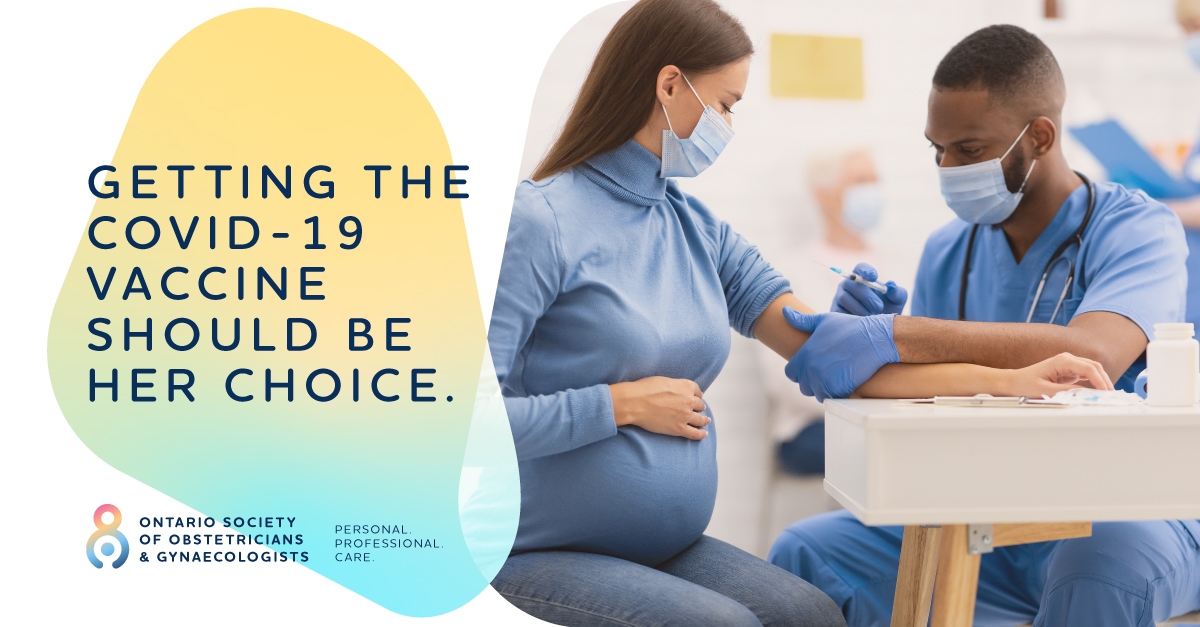ONTARIO JANUARY 5, 2021
The Ontario Society of Obstetrics and Gynaecology (OSOG) and the Ontario Medical Association Section on Obstetrics and Gynaecology (OMA-OG) issued a statement on Covid-19 vaccination in pregnancy today, urging Premier Doug Ford, Deputy Premier & Minister of Health Christine Elliott, and the Covid-19 Vaccination Task Force to immediately allow equitable access for at-risk pregnant and lactating persons to Covid-19 vaccination.
- The data has been reviewed by expert OB-GYN panels who recommend that Covid-19 vaccines be offered to informed pregnant or lactating women based on their self-assessment of risk. Those statements acknowledge the current lack of evidence for or against vaccination in pregnancy and lactation. Dr. Constance Nasello, President of OSOG stated, “Obstetricians have always had to make science-informed decisions on the use of medications in pregnancy and lactation. Pregnancy is a particularly dangerous time for women. Those who acquire viral infections in pregnancy are often sicker, and emerging evidence on Covid-19 shows a higher rate of ICU admissions and severe disease. Pregnant individuals at high risk, such as frontline healthcare workers, may choose to receive the vaccine and they should be supported. They should also be part of a registry to follow vaccinated pregnant women.”
- Covid-19 infections are easily transmissible, resulting in hospital admissions of 8-11% in pregnant individuals who are infected, and a 2-4% rate of ICU admission for severe complications compared to non-pregnant women. The benefit of vaccine protection during pregnancy in preventing the disease is greater than the risks of taking the vaccine. Obstetrical societies agree that the vaccine should be available to at-risk pregnant women who wish to get it. Pregnant individuals are encouraged to discuss vaccination with their obstetrical provider, but that should not be a barrier to timely vaccination.
- None of the current or anticipated Covid-19 vaccines have been tested in pregnancy. Clinical trials were completed with unprecedented international scientific coordination and the Pfizer and Moderna mRNA vaccines have been approved in Canada and the USA. The mRNA vaccines do not contain active virus, preservatives or adjuvants. They contain no components expected to be an issue in pregnancy. A rare allergy to polyethylene glycol (PEG) can occur, and patients who have that allergy should not take this vaccine.
- During the trials some participants became pregnant, but thus far have not shown any adverse reactions to the vaccine. Currently, hundreds of pregnant and lactating health care workers have been immunized with the vaccines, and there are no reports of adverse effects. A registry for pregnant persons who have received the vaccine has been set up at the University of Washington.
As advocates for thoughtful evidence-informed obstetrical care, OSOG supports the recommendation that pregnant individuals who are members of populations at-risk for Covid-19 infection may choose vaccination with an mRNA vaccine and that the vaccines should not be withheld from them.
